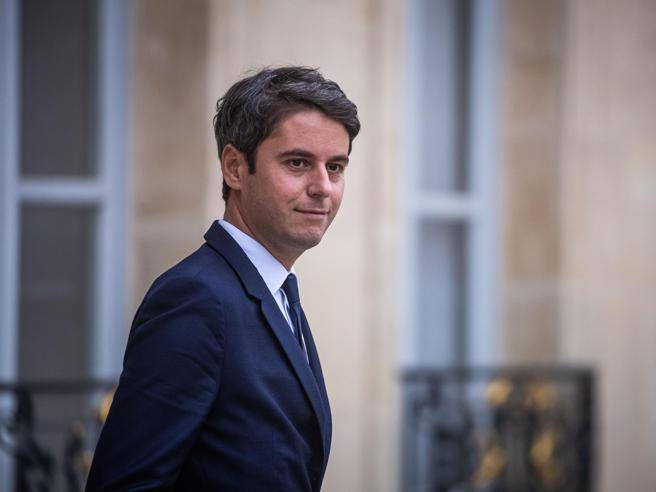FROM OUR CORRESPONDENT
PARIS – After Elisabeth Borne's resignation, President Emmanuel Macron lifted his reservation by choosing Gabriel Attal, the outgoing education minister, for the role of prime minister.
The 34-year-old Atta beat off competition from former Agriculture Minister Julien Denormandie and outgoing Defense Minister Sébastien Lecornu.
Attal becomes the youngest prime minister of the Fifth Republic at the age of 34, dethroning Laurent Fabius, who was appointed to Matignon in July 1984 at the age of 37. He was an active member of the Socialist Party for about ten years, between 2006 and 2016, when (since 2012) the Socialist François Hollande was the President of the Republic. Attal worked for the then Health Minister Marisol Touraine, together with Benjamin Griveaux (future government spokesman and mayoral candidate of Paris, overwhelmed by the scandal surrounding his sex videos). Attal was first elected as a Macronist MP in 2017 and was appointed State Secretary for Youth in 2018 and government spokesman two years later.
Then, at the start of Macron's second term, minister-delegate for public finances before becoming education minister this summer. On December 20, 2023, during the interview on the program “C à vous” on France 5, Emmanuel Macron praised “the energy and courage of Gabriel Attal to fight the necessary battles,” and according to a poll published on January 4 by Figaro : The minister is the most popular in the government, several points ahead of Bruno Le Maire (Finance). Minister Attal was appointed Education Minister last June, which caused some controversy as he only attended private schools in his education, and immediately asserted himself by playing the authority card. His first decision was to ban the abaya, the Islamic robe, from classrooms. He then took new action against bullying, saying he was a victim of it in high school, and continued his fight to relaunch the school — and build his profile as a possible new Macron — with announcements aimed at “a “Electrochc” to create.
At the beginning of December, Attal announced that the exam at the end of middle school would become serious again and essential for access to secondary school (today 10% of students fail but can still enroll) and that teachers in all classes have a recommendation will fail students who are too far behind: it is better to repeat the year and close the gaps than to carry them with you throughout your school career. Furthermore, in college (which is more or less equivalent to Italian middle school) the children are divided into three groups within each class depending on their level. The students are divided into groups based on a “placement test” that is carried out “at the beginning of the year”. Over the course of the year, they can go up or down in groups, because “the goal is to get the school lift back into operation,” explained Gabriel Attal. “I take responsibility to correct what is no longer working,” said Minister Attal. This college produces too many failures and few successes. Keeping students of different levels in the same class tends to stagnate some and discourage others from escaping.” An attitude that has drawn much criticism from teachers. They fear a school that is too selective and tends to highlight social differences rather than help students overcome them.
With this profile, Attal was appointed prime minister and asked to renew the boldness of the original Macronism. The new government's program must respond to the need for “economic and civil rearmament” identified by Macron.
However, apart from a more pronounced personality, the new prime minister's freedom of action will not be much greater than that of Elisabeth Borne. Like you, he will not have an absolute majority in Parliament and like you he will be forced to resort to the controversial Article 49.3 to pass the Finance Bill and other important measures.
Attal will be the perfect personality to lead the Macronists' action ahead of the European elections in June and will be able to face the other very brilliant young person in the media, Jordan Bardella, leader of the Rassemblement National. But the French constitution and the centralizing nature of the current president ensure that the heart of power remains in the Elysée Palace.

